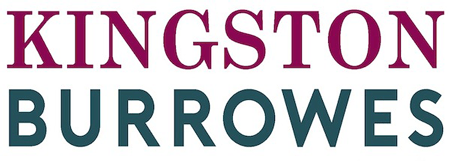As a Director of a Limited Company, it’s essential to pay yourself a salary and dividends in the most tax-efficient way possible. In the UK, tax rates and allowances are subject to change each financial year, making it crucial to stay up to date with the latest regulations. In this blog, we will discuss the most efficient Director’s salary and dividends for the 2023/24 tax year.
What is a Director’s Salary?
A Director’s salary refers to the amount of money that a company pays to one of its Directors as compensation for their services.
What are dividends?
Dividends are a distribution of a portion of a company’s profits to its shareholders. When a company earns a profit, it can choose to reinvest the money in the business, pay off debt, or distribute some of the profits to its shareholders in the form of dividends. Dividends can take different forms, such as cash dividends, stock dividends, or property dividends. Cash dividends are the most common form, where the company distributes cash to its shareholders.
The Essentials
Before we delve into the specifics, it’s worth understanding the current tax rates and allowances. For the tax year 2023/24, the Personal Allowance remains at £12,570, which means you can earn up to this amount without paying any income tax. Once you exceed this threshold, you will pay income tax at the following rates:
- Basic rate (20%) on income between £12,571 and £50,270
- Higher rate (40%) on income between £50,271 and £125,140
- Additional rate (45%) on income above £125,140
Dividends are also subject to tax and unfortunately the tax-free dividend allowance has now been reduced to £1,000. Above this threshold, you will pay tax on dividends at the following rates:
- Basic rate (8.75%) on dividends up to £50,270
- Higher rate (33.75%) on dividends between £50,271 and £125,140
- Additional rate (39.35%) on dividends above £125,140
What salary should I take?
For many years, the most tax efficient method of extracting your company’s post tax profits has been to pay yourself a low salary with the balance as dividends. This can be advantageous for the following reasons:
- Paying a nominal salary to yourself can potentially count as a National Insurance record for your state pension, without creating a National Insurance liability.
- Any payment of a Director’s salary can be claimed as a tax deduction by your company. You may also be able to claim a deduction for any salaries paid to your civil spouse or partner where they are supporting you in the business.
- There is no National Insurance to pay on dividends.
- You don’t have to distribute all your post-tax profits as dividends. These can potentially be retained and Business Asset Disposal Relief claimed when your company is closed down.
Factoring in the above, let’s look at two common approaches for determining the most tax efficient Director’s salary and dividends for 2023/24;
Example 1
This approach assumes that you’re not entitled to the employment allowance because you are the Sole Director of the company:
For the 2023/24 tax year you can pay yourself a salary of up to £758 a month or £9,100 per annum (the Employer’s National Insurance threshold).
You can then pay dividends of £41,170 without paying any higher rate tax (basic rate band of £50,270 less salary of £9,100).
If you take this amount as dividends, you will pay £3,211 tax, outlined below;
- Dividends of £3,470 are covered by the tax-free Personal Allowance after taking into account your salary of £9,100
- The first £1,000 of dividends are covered by the tax-free dividend allowance
- The remaining dividends of £36,700 will be taxed at 8.75%. This amounts to the tax liability of £3,211
Example 2
This approach might be preferable if you are entitled to claim the employment allowance. For example, where you have another employee or a family member working in your business.
If that is the case, you could potentially pay yourself a salary of up to £12,570 per annum or £1,047.50 per month (as the employment allowance allows you to reduce your employers NI liability by up to £5,000 per annum).
You can then pay yourself dividends of £37,700 as opposed to £41,174 as per the first example above, yet will still have exactly the same tax liability of £3,211.
Using either of the two examples above will result in the same amount of net income of £47,059 per annum or just over £3,921 per month.
However, if you choose to pay yourself the higher salary of £12,570 per annum this will also result in a greater corporation tax saving as your salary is an allowable tax deduction for the company whereas dividends are not.
We can help you
Our team at Kingston Burrowes has extensive experience helping and supporting hundreds of company Directors choose the most tax-efficient salary specific to their needs. To explore how we can support you, simply get in touch.




